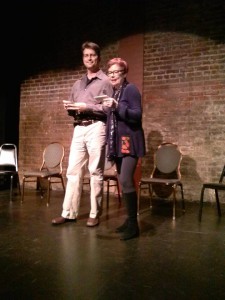Eurybia
Eurybia was a primordial goddess of the rocky shallows and the artsofnavigation. She was the daughter of Gaia and Pontos, godofthe deep oceans. Eurybia bestowed favorable winds, warned of storms, and taught sailors how to use the stars of the night sky and reliable currents to sail the “wine dark sea”. Hesiod calls Eurybia “bright goddess… who has a heart off light within her.” She was the goddess of all seafarers: sailors, merchants, naval captains, and pirates. Yes, pirates. Especially Pirates.
Piracy had been an institution of the Mediterranean Sea, since time immemorial. Ancient city states often supported piracy as a means of acquiring wealth, land, power, and galley-slaves. The rugged, uninhabitable Mediterranean coast lent itself to a “pirate culture” - but not to farming or agriculture. “Merchant ships of the ancient Mediterranean never ventured far from land… so pirate enclaves grew up along rocky shores that provided shelter and kept them hidden from view until it was too late for their victims to escape”. (History of Maritime Piracy; Vallor)
Historians speculate that ancient unfortified cities such as Knossos - and its rich Minoan civilization - may have collapsed due to relentless pirate attacks. Bronze Age peoples fortified their coastal cities, such as Troy and Carthage, with thick walls to ward off pirate raids. Egyptian tomb paintings circa 1190 BCE record Ramses III’s short-lived victory over The Sea Peoples (pirates). Piracy remained a constant threat (or occupation) for centuries, until the Roman Empire began to regulate and protect sea trade, in the 2nd Century BCE. One of the most ruthless pirates of all was Queen Teuta of Illyria, (now Albania) whose privateers systematically plundered richly laden Greek and Roman merchant ships. In her short reign, The Pirate Queen Teuta sparked a war with Rome, and held off the Roman warships for almost four years, between 238 and 234 BCE. Queen Teuta and her able privateers would surely have offered prayers to Eurybia. In the fashion of many ancient rulers, Queen Teuta may even have identified herself with the goddess.
Madeline Puccioni’s play, EURYBIA, takes place in 234 BCE in Queen Teuta’s courtroom. Two Roman legates admonish Queen Teuta (rudely) against her blatant employment of piracy, and threaten to retaliate. Incensed, she dismisses them, “with womanish passion and unreasoning anger” (Polybius; Histories) and sends her lover, Demetrius, after them, to kill one and capture the other. Eurybia — who may be a figment of Teuta’s madness, or the last vestige of her reason — tries to dissuade Teuta from taking on Rome,but to no avail. Demetrius betrays Teuta to the Romans, who attack her ships and cities. For reasons we can only speculate, Consul Gnaeus Flavius allows Teuta to escape into exile, instead of executing her. How does a “divine” Goddess-Queen come to terms with betrayal and defeat? With madness… and her own humanity?
EURYBIA by Madeline Puccioni
Directed by Stuart Bousel
Staged Reading November 6, 2015
Madeline Puccioni lives with her handsome hubby and two insane small dogs in Oakland. Recently retired from 30 years of teaching English 1A, she is delighted to be writing EURYBIA for her third San Francisco Olympians Festival. Her previous Olympian plays were about THE WALLS OF TROY and THE THREE GRAEAE. She’s had a number of short plays produced hither and yon in the last year: YAPPY HOUR in NYC; THE INTERVIEW in L.A.; THE INTERVIEW in SF’S SHEHEREZADE; and WONDER PEOPLE in PCSF’s 24 Hour PlayFest. Another play she wrote for PCSF’S PlayFest, DARK WINDOWS, was given an excellent full production in Pegasus Theatre’s TAPAS Festival last September. PlayGround produced her WAR BABIES in its Monday Night Series at Berkeley Rep in January, and she continues to be a working member of the PlayGround Theatre Company. Madeline will have a new short play up on its happy little feet in Theatre Pub’s ON THE SPOT Festival in March.
